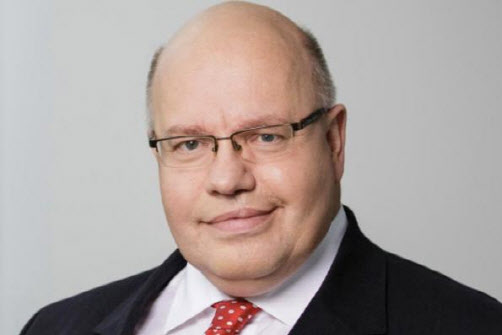In recent years, the US and Japan are also trying to increase their domestic production in order to reduce their dependence on semiconductors in Asia, and it is likely that competition between countries could ignite.
|
According to German economic media Handelsblatt on the 5th (local time), German economic minister Peter Altmeier promoted to lead the advanced semiconductor manufacturing technology in the EU with a target of up to 50 billion euros (approximately 67 trillion won). It announced that it is ready to immediately invest 1 billion euros (KRW 1.35 trillion) in the project.
This is promoted as part of the EU Common Area of Interest (IPCEI), which was launched at the end of 2019 to secure future industrial technologies and stabilize the labor market at the EU level.
Earlier, as the first IPCEI project, a battery program worth 3.2 billion euros, in which governments of seven countries including Germany, France, Belgium and Italy, and companies such as BMW, Opel, and BASF, participated, is expected to be the second project. . For this, Minister Altmeier entered into detailed discussions with France and the EU Commission.
Minister Altmeier sent a letter directly to Taiwan’s Minister of Economic Affairs Wang Mei-Hwa about the desire of domestic automakers such as Volkswagen, Daimler, and BMW, who complained of difficulties due to the lack of semiconductors for vehicles. I want you to emphasize that increasing the value is very important to the German automobile industry.”
In response, it is reported that Taiwan has suggested that instead of increasing the supply of semiconductors for vehicles, they can always purchase the Corona 19 vaccine produced by German bio companies.
The German government, which reduced the need for semiconductor independence through this incident, decided to strengthen the semiconductor industry in the region jointly with the EU. In view of the urgency of this situation, European semiconductor companies were asked to submit a semiconductor investment plan and a request for government subsidies support by the 1st of next month or at the latest by early March.
“It is necessary to ensure that EU companies have patents, development and production facilities in Germany and within the EU, a safe supply chain and a strong and broad base of the semiconductor industry,” said Secretary Altmeier.
In response, a director of the Volkswagen Board of Directors also told local media, “Volkswagen has a plan to work together so that European semiconductor industry leaders can stand shoulder to shoulder with Asian and American companies.” “We need to lead the semiconductor field, and IPCEI can be a means of helping these companies to do this.”
First of all, in order to solve the problem of shortage of automotive semiconductors that are immediately facing our eyes, it is expected to seek a plan to provide preferential subsidies to automotive semiconductor companies in Europe such as Infineon Technologies, Global Foundry, and STMicroelectronics. Of course, it may take some time to expand product supply, but it is an analysis that it will be able to dominate in automotive semiconductors next year and next year.
Along with this, as semiconductor chips used in advanced engine control devices including autonomous driving require ultra-fine processing, active funding for technology development and production capacity expansion in this field is expected to be provided.

